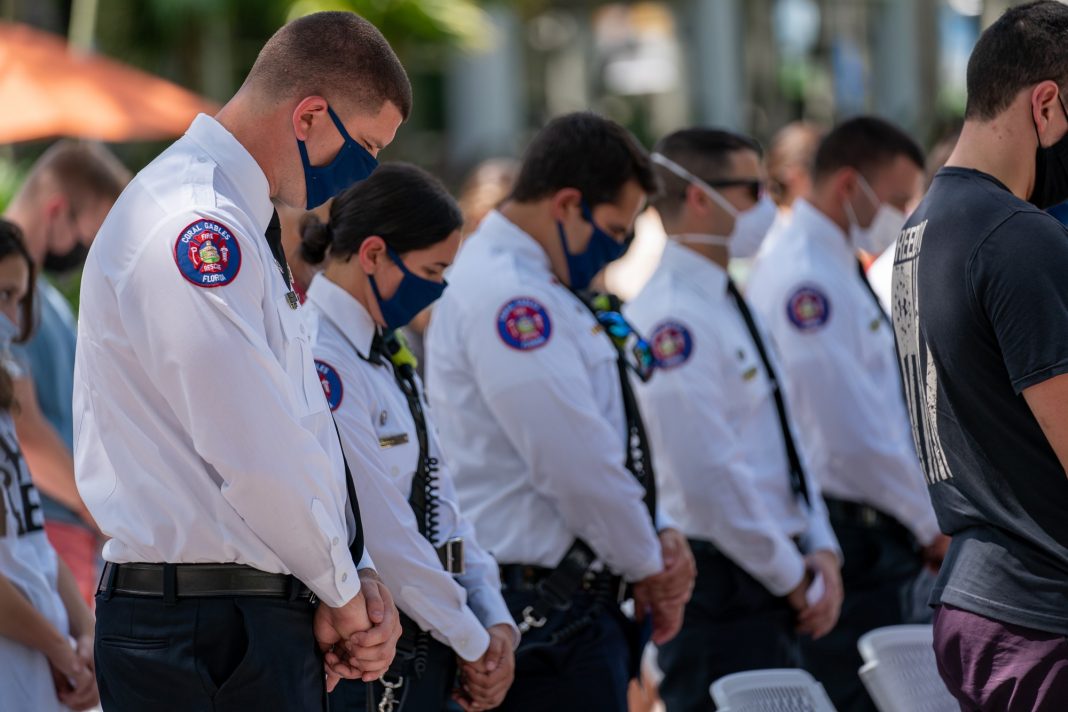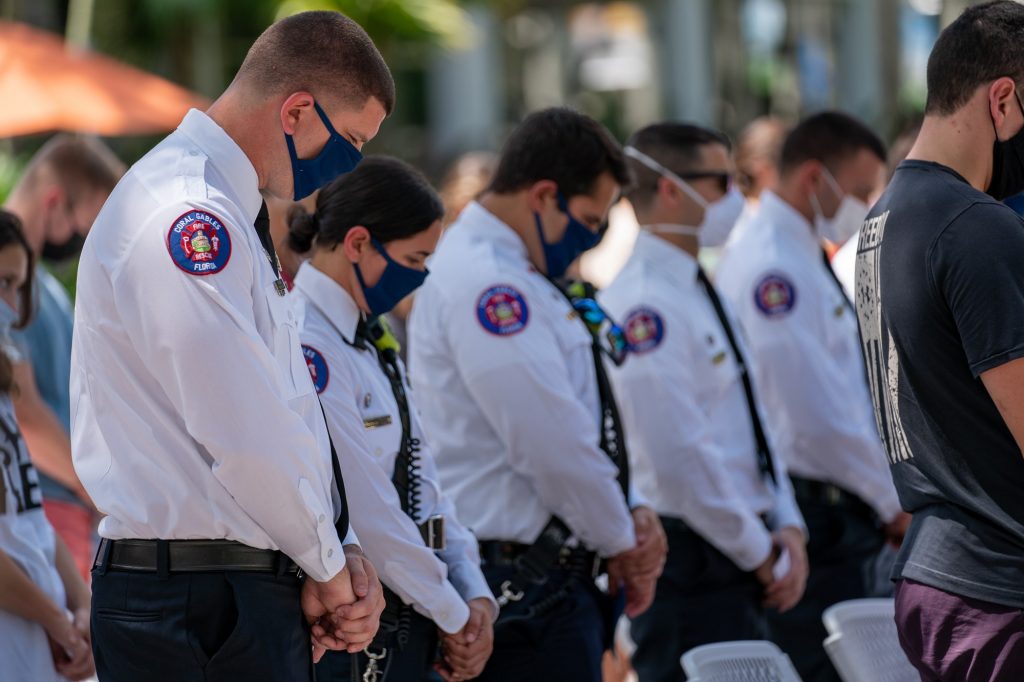

When al Qaeda member and attack orchestrator Mohamed Atta steered American Airlines Flight 11 into the North Tower of the World Trade Center, he initiated a catastrophe that would live on in the memories of Americans everywhere. For the first time in the 20 years since Sept. 11, 2001, however, most of the nearly 2,700 freshmen enrolled at the University of Miami were not alive to witness it.
“With a new generation of students, this was not part of their lives, so it becomes very much history, rather than in the beginning, something that our students lived,” said Senior Vice President for Student Affairs Patricia Whitely.
On Saturday, old and young members of the university community will commemorate the 20th anniversary of the 9/11 attacks, with many of those who lived through it able to recall the time and place they first heard the news. Former University of Miami President Donna Shalala was on her way to UM’s accounting department.
“It never occurred to students that their own country could be attacked,” said Shalala, who served as the U.S. Secretary of Health and Human Services under President Bill Clinton before being hired as university president just three months before the 9/11 attacks. “It’s something they will live with for the rest of their lives.”
Shalala immediately made herself available to students, walking around campus to comfort a grieving community. In the aftermath, she was tasked with leading a university community overcome by shock and grief. But rather than cancel classes, Shalala kept school in session in order to offer students a place of respite.
“It was important for them to go to class to keep themselves busy,” Shalala said. “It was safer here on campus than anywhere else on earth.”
But the students that filled UM’s classrooms on the date now etched into American history are long gone, with each successive class of enrollees increasingly unfamiliar with the reality of Sept. 11, Whitely said.
“For the very first time, when we do this memorial service this year, most freshmen will not have been alive when 9/11 happened,” Whitely said.
UM has held a memorial service to honor the lives lost on 9/11 every year since 2001, with the first taking place the night after the attack. While the country and world continue to grapple with a deadly pandemic, students and faculty again look back to the attacks that started a 20-year war, transformed air travel and devastated the university community over 1,000 miles away.
“I cannot even imagine the panic, fear and terror that quickly rushed through my mother’s body witnessing this, along with those of everyone else around her,” said Mark Iocco, a senior at UM from Queens, New York, whose mother worked a quarter of a mile away from the World Trade Center at the time of the attacks. “Nearly 3,000 people went to bed that night without their son, daughter, husband, wife, mother or father.”
While Iocco struggles to imagine the emotions felt by those who witnessed the tragedy, however, many faculty members are struggling to forget.
“Seeing President Bush react to the news in his ear while he was reading at a Sarasota elementary school was memory-impressed–I will never forget those images,” said Alex Piquero, chair of the department of sociology and criminology. “It is like a bad movie on rewind and you cannot change the channel.”
After 20 years, Piquero said, many young people have learned about 9/11 in history classes or the stories of their parents, if they have learned anything at all.
“Many people now have no idea what 9/11 is, and they were not ‘there’ or ‘around’ to see it happen and then felt the strangeness of it all,” Piquero said. “I wonder if the 9/11 era is only for those who went through it.”
While students today were not likely to have witnessed the events of 9/11 firsthand, however, Piquero said that this class has its own list of generation-defining tragedies.
“The younger generation, say college students now, have their own events that are etched in their mind, the killing of George Floyd and the attack on the US Capitol.”
Joseph B. Treaster, a School of Communication professor and long-time reporter for The New York Times, had just finished breakfast with an insurance executive at a midtown New York hotel when he glanced at a TV screen and saw a plane stuck in the side of a World Trade Center tower. He flagged down a taxi, got about a mile from the Trade Center and ran the rest of the way. He was a few yards from the North Tower when it began collapsing.
“I started running again,” Treaster said. “An avalanche of white dust and cement was chasing me and hundreds of people up the street.”
For this and every new crop of UM freshmen, the stories of the people lost and lives forever changed on 9/11 will have to be read in the archives of newspapers of stories by reporters like Treaster.
“After the first harrowing day, I worked for months on the financial aspects of the attack – how many billions of dollars in lives and property had been destroyed, who would pay and how,” said Treaster, who also wrote brief biographies of some of the victims. “Talking to their family members was among the most difficult and touching experiences of the attack for me.”





